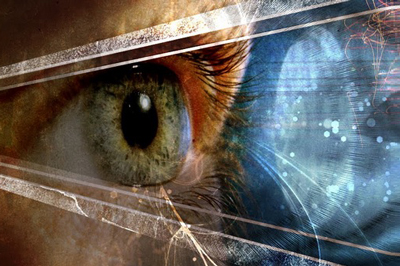Scientists publish a new study examining humans’ ability to accurately predict future events
A new study outlines the scientific experiments under controlled conditions that have been conducted to see if precognition is actually real. The implications of non-material science are huge, what would happen if mainstream academia accepted these results without any bias?

Precognition, is it real? If you examine the research that’s been published in this field, from peer-reviewed publications and controlled experiments, combined with the declassified literature from parapsychology programs from multiple governments around the world, the evidence for the ability of humans to accurately predict future events is overwhelming to the point where it could be considered “pseudoscience”. Given the current parameters of science, precognition’s current place is understandable, and from this perspective, the evidence may not be overwhelming, but you can decide that for yourself.
So what exactly is precognition? It’s essentially the ability to have a premonition of a future event that could not otherwise be anticipated through any known process.
The current parameters of science definitely need to be changed and adjusted: they allow for an observed phenomenon, although sometimes unexplainable, to be completely disregarded, no matter how many times it’s replicated or performed under controlled experiments. This is a result of scientific dogma, rules and laws of science that have been set in place and seem to stay there due to the fact that new concepts of reality simply disrupt belief systems. Take the concept of metaphysical realms for example: the implications and realizations of these realms, if confirmed by science, would result in a complete worldview paradigm shift and perhaps the disruption of multiple religious teachings. That being said, a lot of religion and ancient eastern philosophy does not argue against these realms but speak of them too.
“There seems to be a deep concern that the whole field will be tarnished by studying a phenomenon that is tainted by its association with superstition, spiritualism and magic. Protecting against this possibility sometimes seems more important than encouraging scientific exploration or protecting academic freedom. But this may be changing.” – Cassandra Vieten, PhD and President/CEO at the Institute of Noetic Sciences.
When it comes to precognition, the new study recently published by scientists at the Institute of Noetic Sciences (IONS) examines multiple, scientifically controlled experiments that have yielded significant results. They examined multiple areas of research, multiple studies and meta-analysis showing how the scientific evidence for pre-cognition is measurable and continues to grow.
The authors are careful in their writing, pointing out the observed effects: “If positive empirical evidence continues to accumulate, especially if the methodological recommendations suggested by ourselves and others are followed, then a time may come when we are forced to think the unthinkable. Indeed, the implications of retrocausation are so remote from engrained ways of thinking that the first reaction to this line of research is that it must be flawed. The second reaction may be horror that it represents a previously unaccepted fact about reality.”
The authors provide further studies within this one for the reader’s consideration, so be sure to check them out. But the above point is great, perhaps it is our fear of such confirmations that holds us back?
Another interesting concept discussed in the study is time, as you cannot really have a discussion about precognition without the concept of time. When you think about precognition, as with most parapsychological areas of study, you also have to consider quantum physics, because these two disciplines are deeply related to each other. Studies conducted over the years in quantum physics alone has shown how human intention, and other factors associated with consciousness, can and do interact with our physical material reality.
When we talk about future events, and time, if we look at matter on a quantum scale, future events are represented as a wave of possibilities, and don’t really manifest as physical matter until we, the observer, click it into existence with our own consciousness. In 2007 (Science 315, 966, 2007), scientists in France shot photons into an apparatus and showed that their actions could retroactively change something which had already happened.

“If we attempt to attribute an objective meaning to the quantum state of a single system, curious paradoxes appear: quantum effects mimic not only instantaneous action-at-a-distance, but also, as seen here, influence of future actions on past events, even after these events have been irrevocably recorded.” – Asher Peres, a pioneer in quantum information theory.
So, the concept of time, which is intertwined with the precognition phenomena, is very important to acknowledge, even if we can’t really understand it because it’s so puzzling. What happened in the past can change the future, and what happens in the future can change the past.
Apart from the scientific literature, the US Department of Defence has different programs studying precognition. Dr. Paul Smith, one of the army personnel involved in the STARGATE program writes in his book The Essential Guide to Remote Viewing: The Secret Military Remote Perception Skill Anyone Can Learn about an event where he was involved in successfully predicting future events for the Department of Defence. This was all part of the remote viewing program, which allows one person to perceive and describe the physical characteristics of a location when they are only given the location coordinates. It’s been used a number of times for intelligence collection, as shown by the declassified literature. In 2014, Smith also published a study in the Journal of Scientific Exploration about stock market prediction using remote viewing.
So, along with all of the scientifically controlled experiments, it’s also important to consider time, and all of the functions parapsychology has served, and mostly still do serve in the black budget world, especially when we are talking about pre-cognition. This area of government study is something that the peer-reviewed studies don’t really refer to much as a tool of evidence.
A few years ago, another study (meta analysis) on precognition was published in the journal Frontiers in Human Neuroscience, titled Predicting the unpredictable: critical analysis and practical implications of predictive anticipatory activity. The study examined a number of experiments regarding this phenomenon that were conducted by several different laboratories.
These experiments indicate that the human body can actually detect randomly delivered stimuli that occur 1-10 seconds in advance. In other words, the human body seems to know of an event, and reacts to an event that has yet to occur. What occurs in the human body before these events are physiological changes that are measured regarding the cardiopulmonary, the skin, and the nervous system.
More than 40 experiments investigating this phenomenon in humans have been published over the past 36 years (including: Hartwell, 1978; Radin et al., 1995, 2011; Bierman and Radin, 1997; Radin, 1997, 2004; Don et al., 1998; Bierman, 2000; Bierman and Scholte, 2002; McDonough et al., 2002; Spottiswoode and May, 2003; McCraty et al., 2004; Sartori et al., 2004; May et al., 2005; Tressoldi et al., 2005, 2009, 2011; Radin and Borges, 2009; Bradley et al., 2011). This is what promoted the meta-analysis.
The analysis concluded that: “The predictive physiological anticipation of a truly randomly selected and thus unpredictable future event, has been under investigation for more than three decades, and a recent conservative meta-analysis suggests that the phenomenon is real.”
Humans with “special abilities” have been reported throughout history. The point is: we can use these concepts to develop techniques to improve our lives, and the lives of all beings on planet Earth. Perhaps we will one day be able to perceive future events that are not in humanity’s best interest and then take steps to change that potential future. Maybe those who possess gifts for perceiving the future might be picking up on potential timelines, sort of like the wave of potentials in the quantum double slit experiment.
The main takeaway is that we have many more abilities that we’ve been made to believe, and still some we have yet to discover. At the end of the day, it’s the consciousness behind these discoveries that determine whether or not they will be used by humanity. It’s just like technology: do we weaponize it, or use it for the overall good of all Earthly beings?
yogaesoteric
May 7, 2019
Also available in:
 Français
Français
